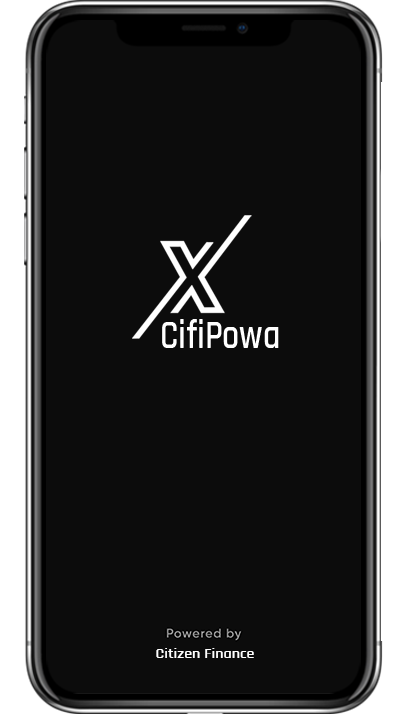What is coming next on Citizen Finance?
Blockchain technology has enabled some games to introduce true ownership of in-game assets but the utility for this new concept is still small and has no real impact in the industry. Citizen Finance will be introducing new concepts and utilities for in-game assets using blockchain technology. The roadmap also asks for those involved to work closely with blockchain providers, as well as to ensure that blockchain is included in broader policy work to "increase management capability around digital technologies". This roadmap highlights some of the enormous opportunities blockchain technology can enable
.png?alt=media&token=2454ed63-5a3a-4f7d-bd28-dd118883f3e2)
Roadmap of Citizen Finance
Q1 2021
•Launch of website v1
•CifiPowa beta release
•Airdrop & Bounty
•Release of Meta City Pre-Alpha (PC)
Q2 2021
Platform
•Presale
•Early Asset Offering (Kickstarter)
•NFT distribution
•Listing
Santa Fe
•CIFI-BNB LP Pool
•CIFI-BUSD LP Pool
•Citizen Pool
CifiPowa
•Launch of Registry
•Marketplace
•More development to editor
Meta City
•Internal Release of Blockdown District (alpha)
•Internal Release of Merchant District (alpha)
•Internal Release of Norse District (alpha)
•Internal Release of Port District (alpha)
•Internal Release of Battlefield (Multiplayer)
•Support for NFT as in-game Asset

•Development of beta-version
•Internal Test
•Public Release
Q3 2021
CifiPowa
•Support Auction-style
•Multiple Minting (ERC1155)
•More development to CifiPowa
Meta City
•Public Release of Blockdown District (alpha)
•Public Release of Merchant District (alpha)
•Public Release of Norse District (alpha)
•Public Release of Battlefield
•Reward Pool
•Internal Test of SaaVC
CifiPowa X
•Support NFT (CifiPowa)
•Art Exhibition
Priority issues to be addressed by standards in Roadmap
The Roadmap identifies the following issues as priorities that should be addressed by the standards.
•Terminology – standards will be set for consistent terminology. This will set a platform for the development of other blockchain standards.
•Privacy, security, and identity – privacy, security, and identity issues are commonly cited as concerns for blockchain technologies. Standards will be set to address these issues and maybe tiered so that different security requirements apply depending on the particular use of the blockchain technology (for example, government and financial services uses may require higher standards of security than supply chain uses).
•Governance and risk-related issues – standards dealing with governance and risk will be set, likely by reference to existing ISO documents relating to risk management and governance of IT.
•Reference architecture – standards may set a best practice framework for developing and using blockchain technologies. However, such a framework is lower in priority than the first three issues above and the Roadmap states that this will form part of a future work program.
•Interoperability amongst blockchain systems – this is an overarching objective of the standards, but will be addressed once the first three issues above, which are more fundamental, have been dealt with.
The standards will provide guidance on technical matters only, and will not deal with matters relating to law. However, the standards will be developed with the participation of regulators from all interested economies to ensure (as much as possible) that the standards and the law are congruent. Interestingly, the development of the standards appears to be preceding the development of the relevant laws in Australia, so the standards may well influence the law. Indeed, the Roadmap indicates that the standards should be robust enough to potentially be referenced by regulators in policy and regulation.
Blockchain is a digital database that records and verifies transactions. It is sometimes also known as “distributed ledger technology”. However, the name “blockchain” is instructive, as it is useful to visualise the blockchain as a chain or stack of blocks – each transaction forms part of a block, and each new block is connected to (or stacked on top of) the other blocks containing the preceding transactions to form a chronological and linear chain.

In order to alter a transaction recorded in the blockchain, you would need to alter all transactions which occurred after the transaction you wish to alter (i.e. remove the blocks above it in the stack to get to the block containing the transaction in question). For the reason described below, this is an almost impossible task using currently available technology. Citizen Finance offers players full ownership of in-game assets. In-game assets are blockchain based non-fungible tokens in which players obtain rewards for playing the game and staking the assets on decentralized pools. With full ownership of in-game assets, users can sell it, gift it or use it as collateral.
Hashtags : #citizenfinance, #nft4fps #nft4XR #cifipowa #metacity #gamefi #citizens #cifi #defi #ciphi #bsc #blockchain #ownership
Learn more about the project:
Web : https://citizenfinance.io
Whitepaper: https://docs.citizenfinance.io
Discord: https://discord.com/invite/xqNxf63sHx
Medium: https://medium.com/@citizen_finance
Authorship
BitcoinTalk username : ameliyaketty
My Bitcointalk Profile Link : https://bitcointalk.org/index.php?action=profile;u=2334838
BEP20 Wallet address : 0x0aa75C53d8aF4B7b70B38D461d179941BFeBc2FF
